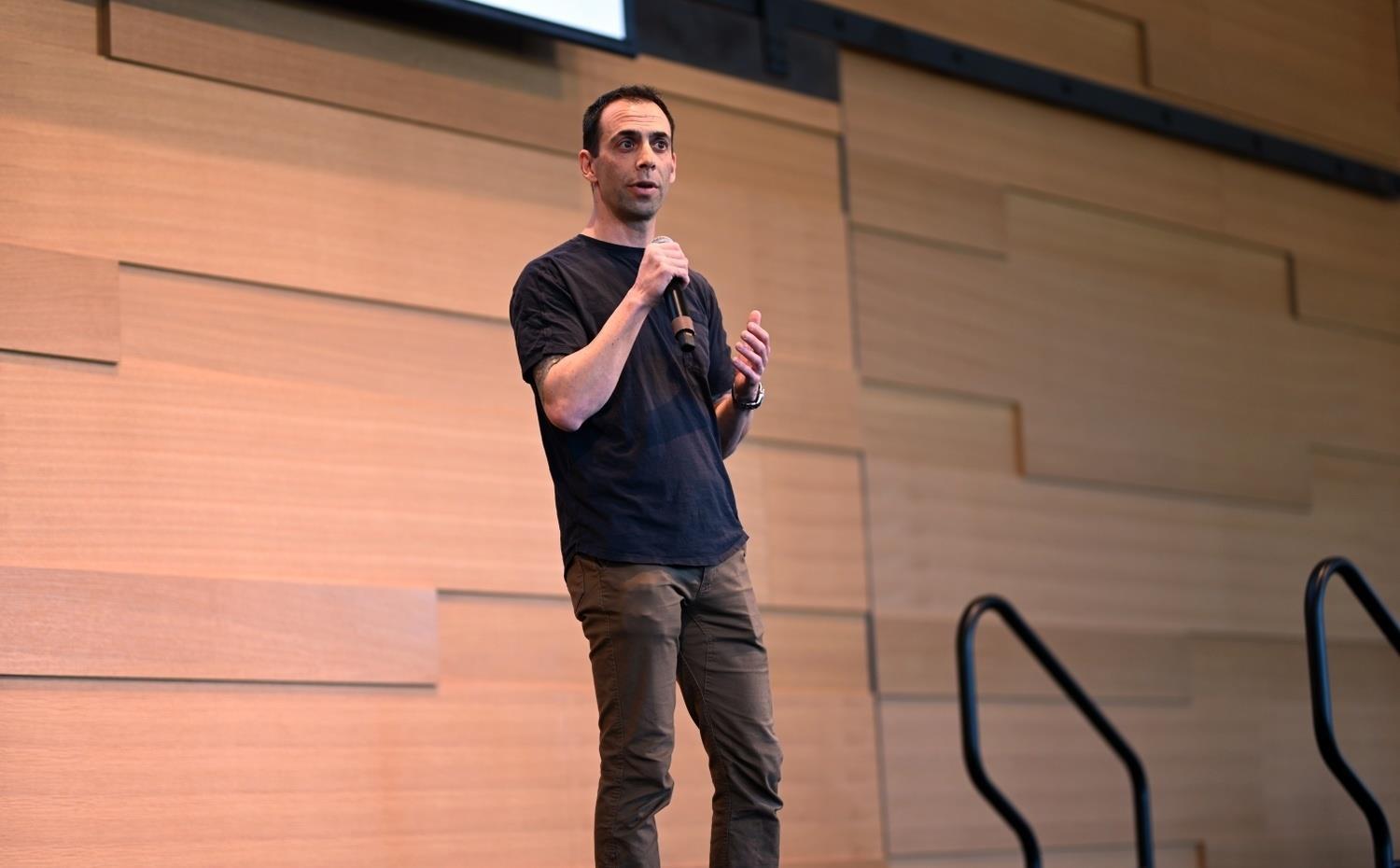
9 minute read
TECH SAVVY TO SAVVY: REVOLUTIONIZING RENTAL
Tech-Savvy To Savvy: Revolutionizing Rental Markets With Chou Hoytt
Chou Hoytt, co-founder of Savvy, found himself amidst the settling remnants of the 2008 global recession when he graduated from university in 2009. After another year of post-graduate studies, he took over his father’s real estate firm and reestablished it back into a stable and wellfunctioning business through implementing reformative strategies. One of his key roles was rebuilding the company’s core structures which were bedevilled by outdated and non-compliant organizational infrastructure.
Advertisement
In addition to this, he also led the firm through addressing numerous environmental, litigious, and operational issues.
In 2017, now armed with an MBA and a five-year work experience from his father’s firm, Chou adopted the unconventional route of starting his own business rather than securing a high-paying job from amongst the many MNEs that were hiring. His choice was in part motivated by his specific interest in the real estate and affordable housing. Entrepreneurship was Chou’s true calling.
The Importance Of ‘Finding A Need’ In The Market
Far too many founders jump into the battleground of entrepreneurship. It is not sleek offices, smooth workflows, upward-sloping revenue graphs or any of the other glamorized elements of corporate culture. Starting a new company will very likely involve a struggle to put together a dedicated team, difficulties in ensuring capital efficiency, competing with fellow businesspersons in the sector and generally dealing with a whole lot of uncertainty. It is vital to ensure that you know your products or services do indeed have some kind of demand among the target customer base; and that this demand isn’t already being fulfilled by a more experienced competitor.
This is why Chou and his co-founder Andrew, took an entire month solely to find a need in the market that Savvy was going to target. The process included interviewing close to 50 property managers, brokers, and real estate owners. These interactions lead Chou and Andrew to glean information on the unfilled gaps these agents faced in their workflows - in this case, it was tenant screening. The specific identification of their aim helped them secure funding from two venture capitalists.
Pinpointing a need in the market also helped Chou and his co-founder to narrow down their target market. They were not wasting resources on customers who were, well, not going to be their customers. Their services were marketed solely towards real estate operators.

DigitizingTenant Screening
Savvy addresses a common problem faced by landlords when taking on tenants - tenant screening. In this example, credit scores don’t provide a reliable and accurate prediction of future payments. Savvy proposes an end-to-end screening solution that connects tenants’ bank accounts in order to verify past rent payments, income and cashflows. Their service provides managers with a comprehensive risk summary that can be used to make reasonable assumptions regarding tenancy decisions and prevent fraud.
This process also creates ease for renters. Instead of submitting tax returns, bank statements, and official pay documents, they are only required to share their bank information through a secured online platform implemented by Savvy. In addition, this system evens out the playing field for those renters who have no credit histories but reliable and stable sources of income and a history of timely rent payments.
Responding To A Global Pandemic
The current global pandemic has drastically brought down company valuations and funding that were previously in place. Investors and clients are increasingly adopting more conservative and risk-averse attitudes towards their money. Their goal afterall, is to secure their investments in entities whose present and futures are not riddled by uncertainties and low revenues.
Savvy was not too deep in the fundraising process to feel a substantial hit that COVID-19 unleashed on other startup entities. Where they do face a challenge is retaining the real estate operators who were about to deploy pilot stage implementations with Savvy. These pilots were planned as unconventionally accelerated phases but owing to the pandemic, had to be slowed back down.
Secondly, Savvy’s main objective for now is to conserve the company’s cash, which is also made easier by the fact that it does not incur a lot of operating costs. Both founders take modest salaries and maintain an amiable financial relationship with the development team that they outsource some operations to.

Managing Remote Teams -The New Normal
Like Gaper, Savvy’s development team was also operating remotely prior to the pandemic. For them, this was already a normal mode of doing work. This in turn let the co-founders and their teams enjoy the merits of remote working. They were spared the transitional conundrums of figuring out the new work dynamics and continue to enjoy positive workflow throughout their business.
Maintaining regular communication amongst team members is key when operating remotely. There are plenty of tools made specifically for business interactions that make communications and work progress updates remarkably convenient. Savvy’s choice of work communication platforms are Slack and Notion, both deployed by Gaper teams as well!
Our chat with Chou gives a good insight on how level-headed and judicious decision making helps new businesses keep their place in competitive and uncertain environments. The ability to embrace unpleasant realities instead of resisting them through complacency and heedless steps may bring bustling business activities to a halt, but it will also help in keeping your boat afloat in harsh waters.
Trio Chat W h y i s a l a n d s c a p e o f r e m o t e- w o r k t o o l s b e t t e r t h a n o n e “ s u p e r-a p p ”
Skype revolutionized the whole video conferencing landscape for the general public and propelled businesses to be able to link with remote teams anywhere in the world. Over the years, while Skype took the backseat, other platforms started cropping up all over. Zoom, WhatsApp and Microsoft Teams, all raced to keep adding the next best tool to their applications to make it more comprehensive and enhanced. Whether it was needed or not, it was created.
Every new update had users coming to terms with how to use it. Whether it was using a code to enter Zoom, or even the necessity to download the app in the first place to be able to use it. All these marginal shifts kept reducing its ease of use. Where sharing a Zoom link was all it took to jump on a call, it now takes a bit longer to connect with the person(s) at the other end.

Likewise, WhatsApp is a more personal, than professional platform, to interact with your contacts. While it can be used on your desktop –it gets too noisy and screens personal conversations alongside any professional conversations you may have with your internal team. If by chance your computer is connected to a screen, well then, deleting chats would be the order of the day.
While both these tools are what one will say “Super-Apps”, are they really needed for internal communications?
Internal communications, among team members, need to be seamless and noiseless. With Trio Chat, Gaper is cutting out all the noise and trimming away all the unnecessary features that each of these Super-Apps have.

The chat would be embedded into workspaces, like Notion, which can then be used as any other chatting platform. Deftly connecting one with their peers and superiors it would enhance each user’s dexterity to communicate across time zones without a hitch.
No cumbersome codes.
No time taken to admit members into the chat.
No noisy alerts.
No showcasing of personal chats.
Getting on a call with team members 10 times a day should not include time wasted on the above.
Trio Chat is part of a landscape of remote-work tools, which is better than one “superapp”. It is all about team tango done in tandem.
A building block in a tower of blocks, Trio will disrupt internal conversations across the board.
Gaper Academy
Filling the employment gap
It’s safe to say that the world economy is shifting. No country stands unaffected by the effects of the Pandemic. The United States saw unemployment rates hit 14.7% in April of 2020 with some states affected more than others. Massachusetts stood at 17.4% and New York at 15.7% unemployment.
To make matters worse the suspension of the H1B1 has led to a major shortfall of resources, particularly tech resources. As the world moves towards a global economy, there is more need now to invest in building a workforce that is fully suited to the task.
Gaper Academy has been conducting training sessions as part of their initiative to build a more technologically empowered community. Software development is a skill that is increasingly in demand, expected to increase by 24% in the year 2024.
In the year 2018 alone, there were 1,365,500 software developer jobs in the US market, and the growth in the field is much faster than the average of other occupations. Computer software is an area that will see a tremendous amount of growth in the coming years.
Software developers also enjoy much higher than average salaries. Data released by the bureau of statistics states that the average annual salary of a software developer is around $110,000.

So the question remains, what exactly is the role of Gaper in all this?
According to a report by Bureau of Labor statistics, 1.4 million positions will be vacant in the year 2021 with only 400,000 computer graduates. This means there will be a gaping shortage of 1 million programmers in the United States.
Coding Bootcamp

A fully immersive program
Gaper Academy wants to bridge this gap and un-tap the potential of prospective software developers by offering intensive training via coding bootcamps. The idea is to engage communities by partnering with different cities. These partnerships will also be augmented with scholarships for which $2 million have already been allocated.
Gaper Academy aims to graduate 2000 software developers in the next couple of years. With this, the aim is to fight unemployment and to fill the growing demand for developers simultaneously.
Gaper has a strong network and has been helping startups and businesses build technology solutions and therefore understands the dynamics of the work environment.
The course curriculum was designed and formulated keeping in mind the practical aspect of a software developer’s job requirements. The idea is to foster a passion for software development and to equip graduates with the skills needed to solve real-life problems.





